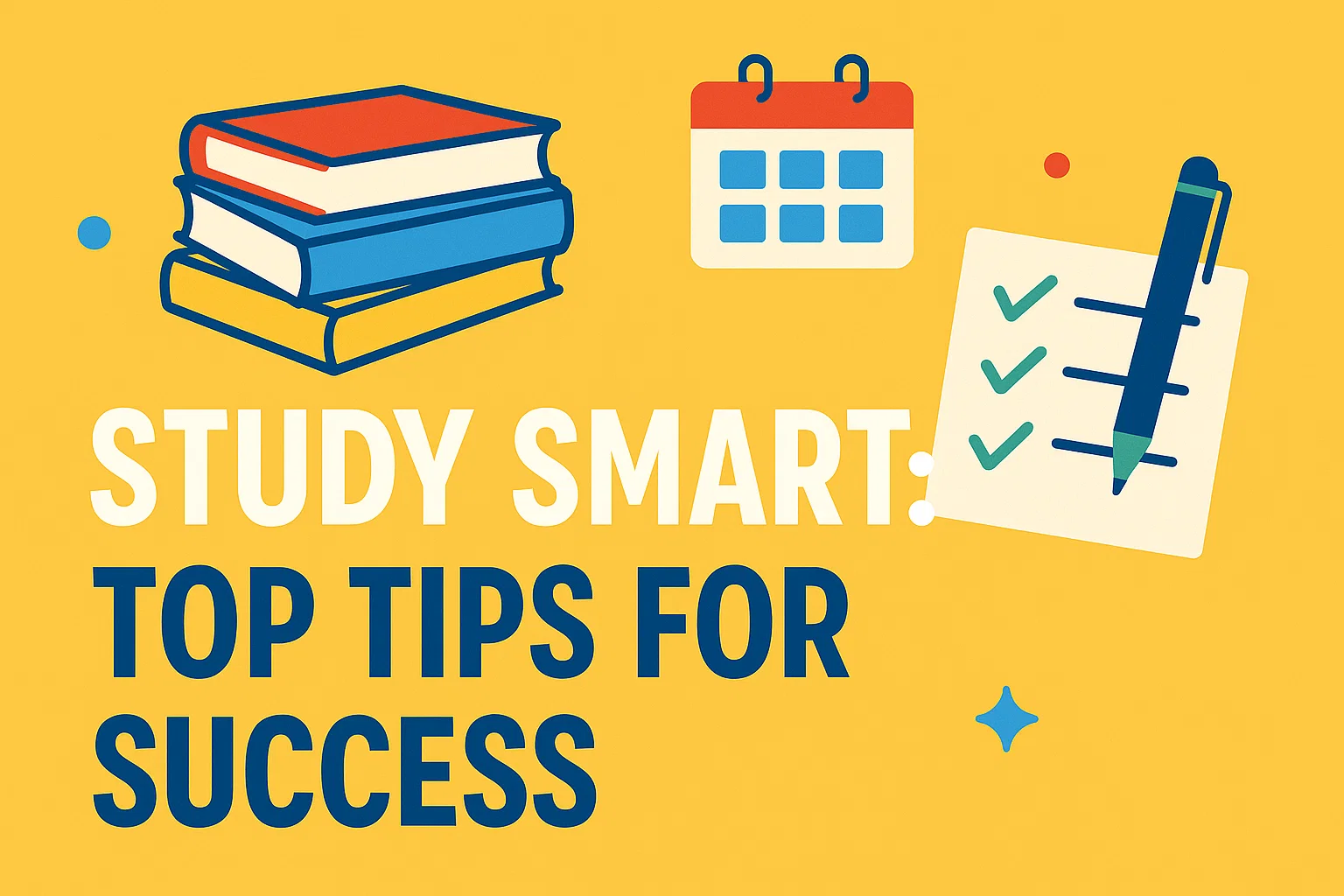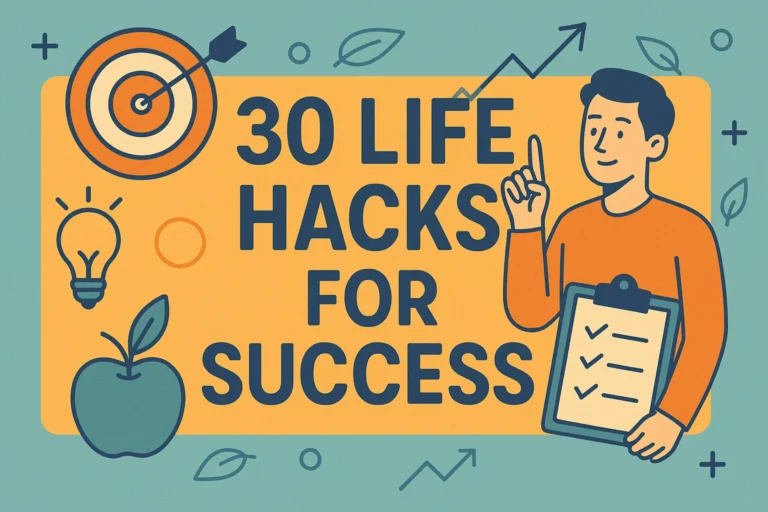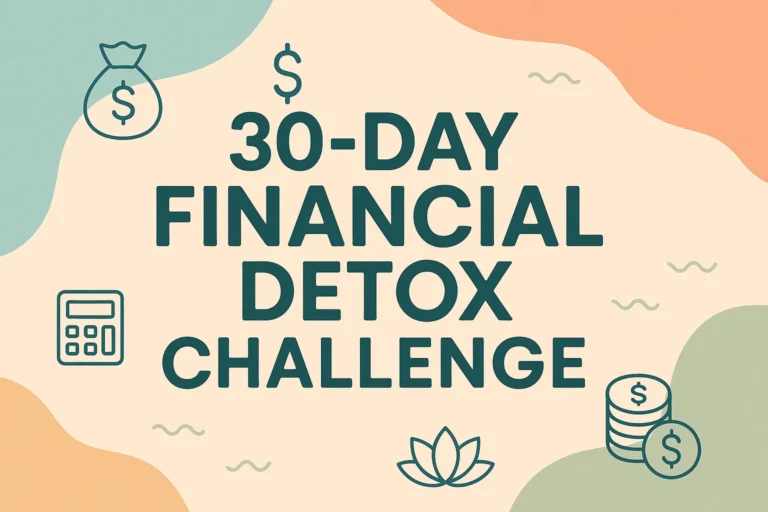Study Smart Essential Self Improvement Tips for Students to Succeed
Study Smart: Essential Self Improvement Tips for Students to Succeed
Hey there, future valedictorian. Or, you know, just someone who wants to get through this semester without wanting to crawl under a rock during finals week. I get it. The mountain of assignments, the endless readings, the pressure to perform—it’s a lot. We’ve all been there, pulling an all-nighter fueled by cheap coffee and sheer panic, only to blank on the exam the next morning. Not exactly a peak life experience, right?
What if I told you there’s a better way? A smarter way? It’s not about grinding yourself into the ground; it’s about working with your brain, not against it. This isn’t about just studying hard; it’s about studying smart. And that, my friend, is a game-changer. Let’s break down how you can upgrade your student life without sacrificing your sanity.
Master Your Mind: The Art of Active Learning
Ever read a whole page in a textbook and then immediately realize you have zero recollection of what it said? Yeah, me too. That’s passive learning, and it’s about as useful as a chocolate teapot. Your brain needs to be an active participant to actually retain information.
So, how do you kick your brain into gear? Ditch the highlighter. IMO, highlighting is just a way to colorfully procrastinate. It feels productive, but it rarely leads to deep understanding.
Instead, try these active techniques:
- The Feynman Technique: Explain the concept you’re learning out loud, as if you’re teaching it to a complete beginner. The moment you stumble over an explanation is the moment you’ve found a gap in your own knowledge. Go back and clarify it.
- Practice, Don’t Just Preview: Your brain learns by doing. Focus on active recall and practice problems. Instead of re-reading your notes for the tenth time, close the book and try to write down everything you remember. Then, check for accuracy. It’s uncomfortable, but that’s where the magic happens.
- Ask Questions: As you read, constantly ask yourself, “Why?” and “How?”. Turn headings into questions and make it your mission to answer them.
Your New Best Friend: Time Management That Doesn’t Suck
“I’ll do it later.” The four most dangerous words in a student’s vocabulary. Time management sounds about as exciting as watching paint dry, but hear me out. A good system doesn’t cage you; it sets you free. It’s the difference between feeling constantly behind and having actual free time to, you know, live your life.
The secret weapon? Time blocking. Instead of a chaotic to-do list, schedule everything into your calendar. And I mean everything.
- 9:00 AM – 10:30 AM: Biology chapter review
- 10:30 AM – 11:00 AM: Coffee break & meme scroll (schedule your fun, too!)
- 1:00 PM – 2:30 PM: Math problem set
This method transforms vague intentions into concrete appointments you’re more likely to keep. It also helps you see exactly how much time you actually have, preventing you from overcommitting.
And please, for the love of all that is good, stop multitasking. Trying to write an essay while checking Instagram and having Netflix on in the background is a recipe for a shoddy paper that takes three times longer to complete. Your brain can’t focus on multiple complex tasks at once. Single-tasking is the ultimate productivity hack.
Craft Your Sanctuary: The Study Environment Audit
Your environment has a huge impact on your focus. Studying in bed might feel cozy, but your brain associates your bed with sleep. Next thing you know, you’re waking up with a keyboard imprint on your face. Not ideal.
Take ten minutes to set the stage for success. Find a dedicated spot—a desk, a library carrel, a quiet coffee shop corner. Minimize distractions ruthlessly. This means:
- Putting your phone in another room, or at least using a focus app to block social media.
- Using website blockers on your laptop during study blocks.
- Telling your roommates or family about your focused study time so they know not to interrupt.
A clean, organized space leads to a clearer, more organized mind. It’s a simple upgrade with massive returns.
Fuel Your Machine: You Can’t Run on Empty
You are a high-performance machine. And you wouldn’t put cheap fuel in a Ferrari, would you? (If you have a Ferrari, can we be friends?).
Neglecting sleep, living on instant noodles, and replacing water with energy drinks is a short-term strategy with long-term consequences for your mood, memory, and focus. Prioritizing sleep is non-negotiable for memory consolidation. Your brain does its best filing and organizing while you’re asleep. Skimping on sleep is like deleting all the work you just did.
Small, sustainable changes make a big difference:
- Hydrate: Keep a water bottle on your desk. Your brain needs water to think.
- Move: A 20-minute walk, a quick yoga session, or even just stretching can reboot your focus and reduce stress.
- Eat (Somewhat) Well: I’m not saying you need to become a gourmet chef. But maybe swap one bag of chips for an apple or some nuts. Your brain will thank you.
The Support System: It’s Okay to Not Do It All Alone
We often wear burnout like a badge of honor, as if struggling alone proves we’re working hard. That’s nonsense. Asking for help is a sign of strength, not weakness.
Form a study group. Explaining concepts to others is one of the best ways to learn them yourself. Just make sure it’s a study group and not a complaining-about-how-much-we-have-to-study group.
Go to your professor’s office hours. Seriously! They put those hours on the syllabus for a reason. Showing up with a thoughtful question demonstrates initiative and can provide clarity you can’t get anywhere else. Plus, it helps them put a name to your face, which never hurts.
Your Mindset is Everything
Finally, let’s talk about your brain’s biggest enemy: itself. Imposter syndrome, the fear of failure, and negative self-talk can derail even the most well-planned study session.
Embrace a growth mindset. Believe that your abilities aren’t fixed; they can be developed through dedication and hard work. A bad grade isn’t a life sentence; it’s feedback. It’s data telling you what you need to work on next.
Be kind to yourself. You’re learning, and that’s a messy, non-linear process. Celebrate the small wins. Finished a study block? Awesome. Understood a tricky concept? Hell yeah!
Wrapping It Up: You’ve Got This
So, there you have it. Studying smart isn’t about some secret, complicated formula. It’s about a series of small, intentional choices: engaging actively with the material, managing your time with purpose, curating your environment, taking care of your body, and leaning on your community.
Forget the myth of the all-nighter. Ditch the passive highlighting. Your goal is effective learning, not just looking busy. Implement one or two of these tips this week. See how it feels. You might just find yourself with better grades, less stress, and more time to do the things you actually enjoy. Now, that’s a win-win. 🙂
Go on, get out there and conquer your to-do list. You’ve totally got this.







